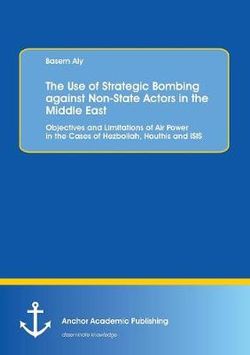In the last decades, states revealed a tendency for expanding their dependence on so-called strategic bombing in wars against other states, an approach that raised questions on whether it is possible to reduce the involvement of ground and naval forces in future military confrontations. The successful employment of strategic bombing as the major pillar of military operations that took place within different geographical areas and terrains encouraged states to limit or altogether avoid resorting to campaigns that involve putting their "boots on the ground." As a matter of fact, one can claim that improvements in the military aircraft industry - including persistent research on issues of technology, effectiveness and accuracy - have pushed for this result. Another set of reasons, however, that are indirectly connected to developments in aerial capabilities of militaries should not be ignored, including demands by governments for shorter, less costly wars, concerns about public opinion and electoral implications, as well as the fear of high rates of casualties. Airmen, meanwhile, were also called to implement strategic bombing operations against non-state actors. Yet, the outcome is certainly an issue of debate. In general, launching air strikes on states differs on many levels from aerially attacking militant organizations, terrorist groups or local tribes. Armies are fundamentally trained to fight against other armies, in addition to the difficulties of differentiating between civilians and militants, the so-called principle of discrimination. This study seeks to examine both the rationale and objectives of states in resorting to air power against non-state actors in the Middle East, focusing on the three cases of aerial operations on Hezbollah in Lebanon, ISIS in Syria, and the Houthi rebels in Yemen.
- ISBN:
- 9783960671084
- 9783960671084
-
Category:
- Politics & government
- Format:
- Paperback
- Publication Date:
-
09-02-2017
- Publisher:
- Anchor Academic Publishing
- Pages:
- 120
- Dimensions (mm):
- 210x148x6mm
- Weight:
- 0.15kg
This title is in stock with our Australian supplier and should arrive at our Sydney warehouse within 2 - 3 weeks of you placing an order.
Once received into our warehouse we will despatch it to you with a Shipping Notification which includes online tracking.
Please check the estimated delivery times below for your region, for after your order is despatched from our warehouse:
ACT Metro 2 working days
NSW Metro 2 working days
NSW Rural 2 - 3 working days
NSW Remote 2 - 5 working days
NT Metro 3 - 6 working days
NT Remote 4 - 10 working days
QLD Metro 2 - 4 working days
QLD Rural 2 - 5 working days
QLD Remote 2 - 7 working days
SA Metro 2 - 5 working days
SA Rural 3 - 6 working days
SA Remote 3 - 7 working days
TAS Metro 3 - 6 working days
TAS Rural 3 - 6 working days
VIC Metro 2 - 3 working days
VIC Rural 2 - 4 working days
VIC Remote 2 - 5 working days
WA Metro 3 - 6 working days
WA Rural 4 - 8 working days
WA Remote 4 - 12 working days





Share This Book: